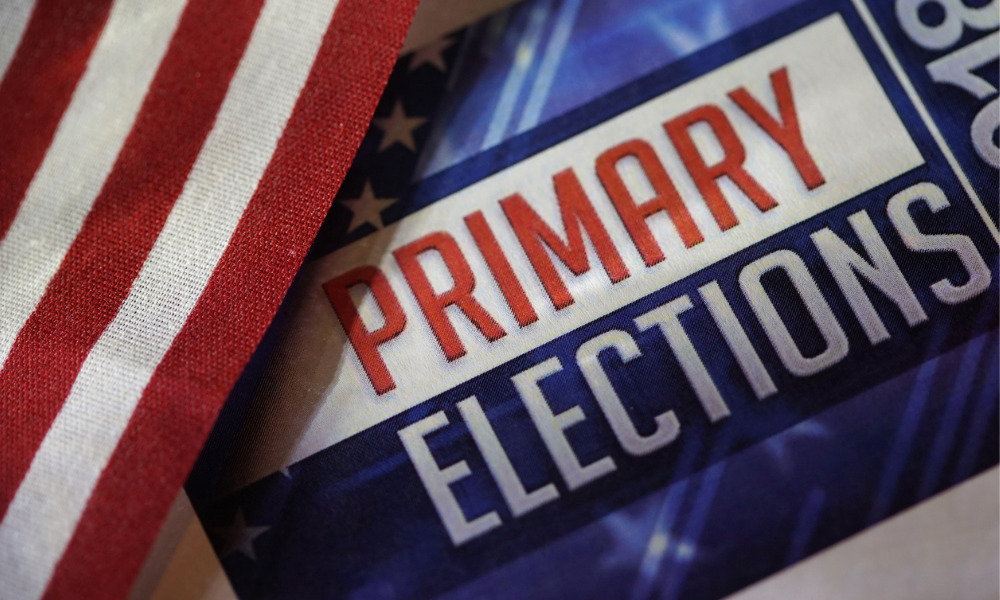Analyst and advisor make market predictions ahead of tonight’s critical Democratic primaries

It’s “Super Tuesday” in America. Fourteen states are holding primary elections today, including California and Texas, the two most populous states in the union. By the end of the day we should have a clearer picture of the Democratic nominee for US president, whether that’s Bernie Sanders, Joe Biden, or Michael Bloomberg. Today’s result will likely set the tone of the 2020 general election and the impact that election will have on markets through the year.
A big win for the left-wing frontrunner Bernie Sanders might set up a rocky election year for capital markets. Victory for a more moderate candidate, like Biden or Bloomberg, might limit the election’s impact on markets through 2020. Either way, the Democratic nominee faces an uphill climb against President Trump who, despite a seemingly endless string of controversies, is an incumbent presiding over a strong economy. Markets also happen to love him.
“If I look at a Bernie Sanders … these are quite extreme views, where general market participants would not be happy from an outcome of capital markets,” Sadiq Adatia, chief investment officer at Sun Life Global Investments told WP. “There's a lot of social stuff going on there that might be good for the broader public but aren’t necessarily views that would help a run-up at stock markets.”
Adatia maintained that, even if Sanders wins big tonight, markets might not immediately react to the primaries. That’s largely because of last week’s coronavirus selloff. He thinks the choice of nominee will have greater impact in the medium-term.
Adatia also said that a win by a more market-friendly candidate, like Biden or especially Bloomberg, might drive an uptick in markets as investors learn that the candidates from both parties will be friendly to their interests.
“If Bernie wins it's going to be difficult for the Democrat Party to win in November,” said Arthur Salzer, CEO and CIO at Northland Wealth Management. “I think the markets can see through that, though, because I don't think they see him as a viable option to become President of the United States.”
Salzer thinks Sanders is likely to beat Biden and Bloomberg for the nomination, but some of his key policies like Medicare for All will alienate enough voters in the center to weaken his viability in the general election. That, coupled with the nature of the US electoral system, should carry Trump home and keep markets stable.
Even though he’s betting on another Trump win. If poll numbers do swing Bernie’s way Salzer accepts there’s a chance of serious market volatility.
Strong poll numbers for Sanders will have particularly big impacts on tech stocks, which might face regulatory pressure and even trust-busting. Healthcare, too, could see a fundamental overhaul under a President Sanders, which could send healthcare and pharmaceutical stocks tumbling.
Adatia thinks the safest stocks in a surging Sanders scenario will be blue-chip dividend payers. He thinks Sanders’ proposed raising of capital gains taxes will torpedo higher growth stocks.
Neither Salzer nor Adatia are advocating that investors start protecting themselves against a Sanders nomination just yet. Salzer remains confident in Trump while Adatia thinks there’s still time before a “Sanders effect” starts to play out on the markets. That said, he thinks that if the choice in November comes down to Sanders vs Trump, we’re looking at an election with unprecedented polarization between the parties.
“Trump is not playing the normal political game that that other candidates would and Bernie, on the far end of the spectrum, really hates capital markets and wants to impact the rich,” he said. “I do think there’s a disparity of views that you haven't seen in the past. It's hard to go back in history and say… ‘this is what happened previously, so that's what should happen again now’.”



